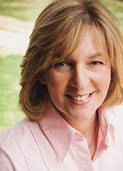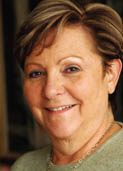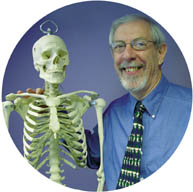High Marks for Mini Schools (Page 2)
High Marks for Mini Schools (Page 2) McGill University
User Tools (skip):
High Marks for Mini Schools (Page 2)
Course Content
Michael Green, a businessman who has attended all three Mini programs in Medicine, Law and Music with his wife, appreciates the clarity with which teachers like Setrakian communicate highly technical concepts. Through the Mini lectures, he says, "you feel connected to these other worlds."
"It's very inclusive, not exclusive, and I like the way it's presented," says Green. "It's great to listen to a surgeon talk about operating on eyes, and the audience going 'Ewww!' To listen to somebody describe how you would operate on an eye! I for one always thought there was practically nothing they could do to an eye. But they can do many things. So the doors get opened. Too often in our lives those doors are closed."

Rosalie Jukier
Owen Egan
Law professor Rosalie Jukier, BCL'83, LLB'83, is on leave from McGill for two years at the National Judicial Institute in Ottawa, developing and delivering legal education to Canadian judges of all levels. But she is returning this fall as the chair of Mini-Law because she has enjoyed organizing the series so much. Kappy Flanders had gone to her after the success of Mini-Med and told her she thought the public would be as interested in learning about law as they were about medicine. "And she was right," Jukier says. "It sold out within a week. I've never been happier to have someone say, 'I told you so.'"

Kappy Flanders
Owen Egan
Jukier describes Mini-Law as an academic course, not a legal advice seminar. "We don't have a session on how to deal with your landlord, or practical tips on spousal support." The program flows naturally from lecture to lecture, moving from broad philosophical concepts like "What is law?" to how legal issues go through the court system, then onto public law fields like human rights and criminal law, and the private areas of contracts, corporate law and family law.
She herself was a Mini-Law lecturer. "It was one of the most fun things I've ever done. Actually conceiving of how to present to a lay audience interesting things about the law of contracts, where they didn't have any background and hadn't done any homework or reading, was a very big challenge. You have to think of ways to present this material in a fun and engaging manner." She used a clip from the indie film Igby Goes Down that featured a conversation about contracts and then dissected the clip as a way of uncovering the popular myths. Students learned a contract doesn't have to be in writing, and that even if things are written down very clearly, a court has all sorts of options for tempering contractual agreements. Or what happens to contractual obligation if one of the parties dies? "You can't get out of your contractual obligations by dying. Not a good trick."
Holding the audience's attention through sometimes unconventional means has been a primary feature of all the Mini lectures. Dean of Law Nicholas Kasirer, BCL'85, LLB'85, used paintings to illustrate points of family law. Professor Gordon Foote's Mini- Music lecture on jazz featured a live band. In Mini-Med, complex computer animations were developed by the multimedia experts in the McGill Molson Medical Informatics Project, and for some of the more clinical subjects, students were treated to some good old-fashioned blood and guts. "There were videos of procedures such as heart surgery, endoscopic surgery, interventional techniques in radiology," says Dr. Mel Schloss. "They see exactly what goes on."
The Dean of Medicine always reserves space for potential students. "We have been able to attract high school and CEGEP students, and students from First Nations," says Fuks. "We're trying to encourage a career in the health sciences among young men and women in and around Quebec. So this is a way of introducing them to McGill and to a career in medicine."
Rosalie Jukier does the same. "I think it's important for students to get a taste of what a legal education is all about, because I think they don't have any idea. Even if they don't apply, the exposure is a wonderful thing."
That includes exposure to some of the best teachers in the country who put in many unpaid hours of work and there are no publication credits to list among their academic accomplishments. Fuks points out "I spent a lot more time preparing my Mini-Med talk [on the human genome] than I spend on a seminar to my peers: working with the audiovisual people, reading up on it, and trying to reformulate it in a way that made sense to a non-technical audience."
But there is no shortage of volunteers. "Not only was it not difficult to get the professors to agree," says Rosalie Jukier, "but I have professors knocking down my door to do the lectures."
And the audience is knocking down the doors to get in. John Cohen is thrilled at how his brainchild has evolved. "It's brilliant. It's the one thing the University has that no one else does - knowledge. People like an intellectual workout. We've got something that people out there desperately want."
Portrait of the Doctor as a Young Geek

Courtesy of J. John Cohen
What's a six-year-old science nut to do when his parents won't buy him a chemistry set? Well, it's amazing what you can achieve with simple household chemicals. So explains University of Colorado medical professor J. John "JJ" Cohen (pictured), the inventor of Mini-Med School, as he recalls blowing things up in his basement while experimenting with hydrogen as a kid. "When your parents won't buy you acid, you can use drain cleaner to make your own hydrogen."
His obsession with science paid off early. The summer he was 11, growing up one block from the Jewish General Hospital, Cohen met his mentor, Martin Hoffman, who had a lab at the hospital. "He gave me a job counting radioactive iodine, which I suspect nowadays would not be recommended for 11-year-old kids. Hoffman taught me so well that the next year the biochemistry lab hired me for the summer to actually do routine patient biochemistry. And I went on doing that right through high school. It was handy that I lived next door, so if there was an emergency in the middle of the night, I could get there fast to do the blood sugar. Those lab chemists insisted that I be accurate and reliable, otherwise patients would suffer, so I was beautifully trained."
By the time Cohen was a medical student at McGill, Hoffman had moved to the Royal Victoria Hospital, a McGill teaching hospital, and so Cohen renewed his training under his hero. "In my mind, he is one of the greatest faculty that ever worked at McGill.
"When I tell people that Donald Hebb taught me Psych 100 at McGill, people who know about psychology say that would be like being taught Physics by Einstein. Or that Wilder Penfield taught me Neuroanatomy, they say, 'I can't believe it.' That was the way it was at McGill.
"I remember sitting in the classroom thinking, 'when I grow up, I'm going to be these guys.' That's been my goal my whole career. I want to have as much impact on my students as Donald Hebb, Wilder Penfield, and all those guys had on me. You say to yourself, 'Here's the most famous guy in experimental psychology teaching Psych 100 - he must think it's pretty important for us to understand it. And I better take advantage of this.'"
Cohen went onto a distinguished career in immunology and was one of the early experts in programmed cell death studies. Those famous McGill teachers made their impact: Cohen's passion for teaching has won University of Colorado's Excellence in Teaching Award every year since 1982 and he has been named Teacher of the Year five times.


